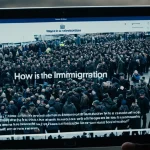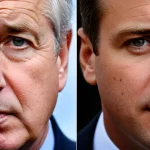Key Factors Threatening the UK’s Cultural Identity
The UK cultural identity challenges today are shaped by a mix of historical evolution and modern pressures. British cultural threats stem from rapid social change, economic shifts, and evolving values. Over centuries, the British identity has transformed—from imperial power to a diverse, modern society—making the concept of a fixed national culture more complex.
Preserving distinct cultural values is vital to maintaining a sense of heritage amid these changes. Challenges include balancing modernization and embracing diversity without losing core traditions. For example, longstanding customs, dialects, and local arts face decline as global trends dominate everyday life. This dynamic creates tension between continuity and adaptation.
Also to discover : How Will the Upcoming Political Decisions Impact Britain’s Future?
Understanding this context helps clarify why maintaining tradition is more than nostalgia; it safeguards social cohesion and communal identity. Stakeholders emphasize how cultural preservation supports intergenerational knowledge transfer and enriches national pride. Yet, acknowledging that identity is fluid encourages inclusive approaches that respect both heritage and change.
In sum, the key threats to British identity involve navigating the delicate interplay between upholding tradition and engaging with contemporary realities, ensuring culture remains a living and unifying force for all UK residents.
Also read : How is the UK Addressing Current Immigration Challenges?
The Impact of Globalization on British Culture
Globalization effects have significantly reshaped the UK’s cultural landscape, inducing both opportunities and challenges. One major concern is cultural homogenization—the process where global media and consumerism spread international brands and trends, gradually overshadowing local customs and traditions. British cultural traditions, such as unique festivals, culinary heritage, and dialects, often face erosion as global influences dominate daily life.
For instance, popular global streaming services expose UK audiences to a wide variety of international content, altering traditional entertainment preferences. Similarly, the ubiquity of international fast-food chains changes eating habits, threatening traditional British cuisine’s prevalence.
Balancing modernization with the preservation of UK traditions has become essential. While globalization introduces innovation and diversity, it risks diluting cultural uniqueness. Maintaining tradition in this context means actively promoting and valuing British customs alongside embracing beneficial global influences.
Strategies include supporting local artisans, encouraging participation in cultural festivals, and integrating traditional cultural education into school curriculums. These efforts help safeguard British identity amid rapid global changes, ensuring that distinct cultural values continue to thrive in an interconnected world.
Immigration and Multiculturalism: Balancing Diversity and Tradition
Immigration and culture interact profoundly in shaping the UK cultural identity challenges. The UK’s history of immigration has introduced varied cultural elements, enriching society but also complicating traditional notions of identity. Increased immigration brings vibrant diversity, fostering innovation and expanding cultural expressions. However, it also raises questions about how to balance multiculturalism in the UK with maintaining tradition.
One key challenge lies in cultural integration: ensuring newcomers participate in society while respecting existing customs. Tensions may arise when some perceive that traditional British values and practices risk dilution. For example, debates around language use, religious observances, or community celebrations highlight this delicate balance. Successfully navigating these tensions requires promoting mutual respect rather than cultural isolation.
Importantly, multiculturalism benefits UK cultural identity by creating a dynamic, inclusive culture that adapts without losing its foundations. Efforts to integrate cultural diversity while preserving core traditions help address British cultural threats related to social fragmentation. Community programs encouraging intercultural dialogue and education foster understanding and cohesion, ensuring traditions evolve positively alongside new influences.







